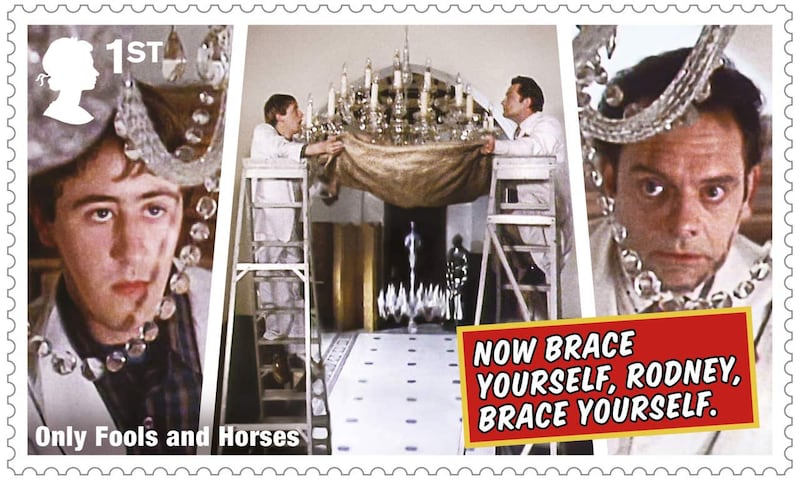A company set up by the creator of the TV sitcom Only Fools And Horses has won a High Court copyright fight with the operators of an “interactive theatrical dining experience”.
Shazam Productions, which was set up by writer John Sullivan, who died in 2011, had taken legal action against Only Fools The Dining Experience.
Lawyers representing Shazam alleged that the Only Fools The (cushty) Dining Experience show infringed copyright in the sitcom scripts and copyright in “each of the central characters” – and that marketing of the show had involved “passing off”.
Operators of the dining experience disputed Shazam’s claims.
Judge John Kimbell, who heard arguments at a High Court hearing in London in March, ruled in favour of Shazam on Wednesday.
The judge said, in a written ruling published online, that Shazam’s claims for “copyright infringement and passing off” had succeeded.
He concluded that the character of Del Boy is a “literary work for the purposes of copyright law” and that each script used in Only Fools And Horses is a “dramatic work for the purposes of copyright law”.
“I do not accept that the nature of Only Fools The (cushty) Dining Experience was so removed from Only Fools And Horses as to make it obvious that it was not associated with Only Fools And Horses,” he said.
“The similarity in the dress and appearance of the characters in the publicity material for Only Fools The (cushty) Dining Experience, the use of the Only Fools domain name were, in my judgment, such that it was likely to cause causal observers to consider that the Only Fools The (cushty) Dining Experience show was officially authorised and associated with Only Fools and Horses.”

Lawyers had asked the judge to watch three episodes of Only Fools And Horses before delivering his ruling.
They said he had been given a boxed set of the sitcom and asked to look at episodes called Big Brother – the first episode – Yuppy Love and Little Problems as part of his deliberations.
The judge heard that the dining experience show was a “part-scripted, part-improvised” dramatic performance and featured central characters from the sitcom – Del Boy, Rodney, Uncle Albert, Marlene, Cassandra, Boycie, Trigger and DCI Roy Slater.
Lawyers representing Shazam said the characters had the “distinctive character traits conceived by John Sullivan” and used their “signature phrases and ways of speaking”.
Operators of the dining experience show contended that their use of the characters and materials from the sitcom did not amount to material that could be protected by copyright.
They denied “passing off” on the “footing” that their show would not be seen as connected with the owners of the intellectual property in the sitcom, but as an unofficial tribute show, and questioned whether Shazam, rather than the BBC, owned goodwill attached to the name Only Fools And Horses.
Jim Sullivan, John Sullivan’s son and a director of Shazam, said: “My dad always believed in fairness and standing up for what’s right so I think he’d be very pleased with the result.
“Del, of course, would be delighted and, being a sophisticated man of culture, would be particularly chuffed with being described as a ‘literary work’.
“To him that would be very ‘mal de mer’, as they say in the Cote du Rhone.
“We are so very pleased with the court ruling today which makes it clear that copyright does actually mean something.
“This case was about protecting John Sullivan’s legacy and the integrity of his work.
“Only Fools And Horses did not just magically appear out of thin air overnight. It took my dad decades of personal experience, skill and hard graft to create and develop an imaginary world rich in memorable characters, dialogue, jokes, plots and history.”
Carl Steele, of law firm Ashfords LLP, who represented Shazam, said: “I am delighted for Jim Sullivan and the wider Sullivan family.”
He added: “Only Fools and Horses is a national treasure and its writer, John Sullivan, is recognised as having been a master of his art.
“The judge held that the fictional character, Del Boy, is a copyright work. To my knowledge, this is the first time in this country that a fictional character has been recognised as an independent copyright work.
“The decision has major implications for those who wish to use such characters and who, in the past, might not have sought the copyright owner’s permission to do so.
“It is also, to my knowledge, the first time an English court has had to consider the law concerning ‘fair dealing’ of a copyright work for the purposes of parody or pastiche.”








